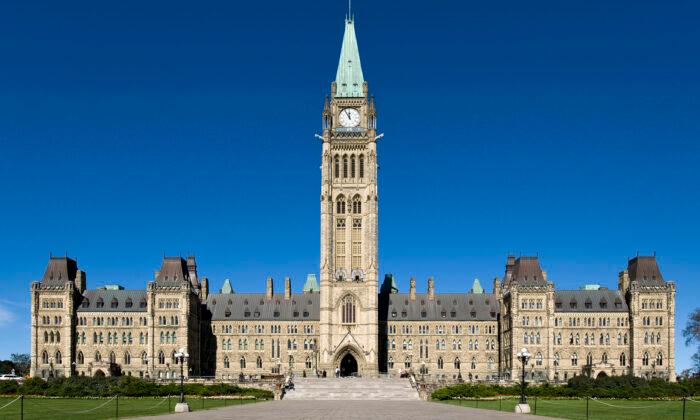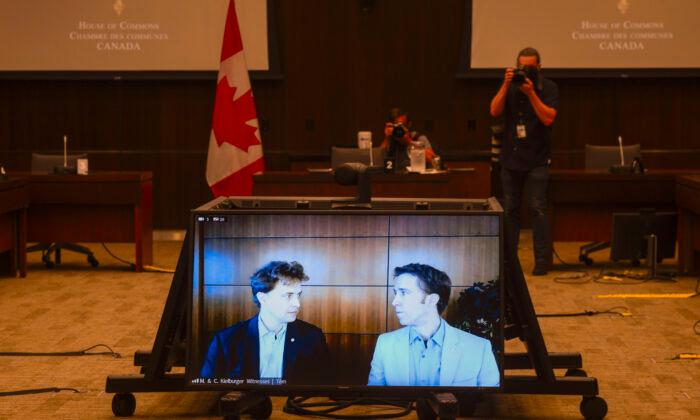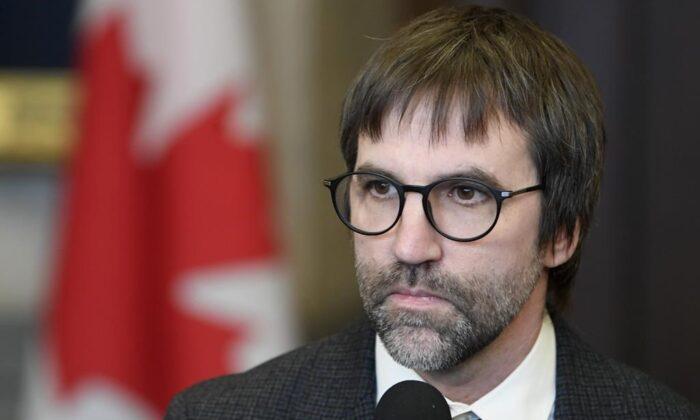Canada’s democracy is in jeopardy due to a lack of parliamentary oversight, and regular sittings must immediately resume, says a new report from the Macdonald-Laurier Institute.
“The COVID-19 pandemic has come at considerable human, economic, and societal cost to Canada. Yet an unexpected victim of the crisis has been Canada’s parliamentary democracy,” says the Ottawa-based think tank’s June 15 press release on the report.
Because of the pandemic, the minority Liberal government has suspended the normal business of the main chamber, reduced the frequency with which written questions can be tabled, and reduced Parliament to the form of a special COVID-19 committee.
Due to a Liberal arrangement made with NDP support, Prime Minister Justin Trudeau convenes Parliament only for specific reasons and limited times under his discretion.
Such measures avoid regular scrutiny that serves to hold decision-makers accountable and demonstrate “unprecedented disregard for parliamentary convention,” says Christian Leuprecht, the report’s author and a Munk senior fellow at the Macdonald-Laurier Institute.
Between July 2019 and June 2020, Parliament will have only 40 sitting days—the smallest number of sitting days in any 15-month period in Canada’s history.
“If a majority government had dared to take such steps to have the House of Commons not meet, it would have been accused of a gross power grab and being dictatorial in nature, because it is the role of Parliament to assess the work of government,” lawyer and author Don Hutchinson said in an interview.
The government has not produced a budget or even a financial update, despite earmarking massive expenditures because of the pandemic.
“The bill introducing spending estimates has not yet been delivered to the opposition parties for their consideration—which, in the government’s eyes, may be irrelevant because government has said it will not accept any amendments to the bill, which again is hugely disrespectful of Parliament,” Hutchinson says.
Paul G. Thomas, professor emeritus of political studies at the University of Manitoba, says Parliament struggles to give typical budgets adequate scrutiny, let alone the added expenditures and economic impact from responding to the pandemic.
“We’re talking about $300-plus billion a year spending, if you can wrap your head around that, and the documents you’re forced to deal with look like a New York telephone book,” Thomas says.
“So that’s an area where I think the Trudeau government has maybe been too cavalier in its treatment of Parliament.”
He notes, however, that the opposition parties also have reason for caution.
“Politicians will be judged harshly if they’re too obstinate and seem to want to be too opportunistic in trying to prevent the government from acting. So it’s a tricky, tricky line for the opposition to walk.”
In his report, Leuprecht argues that although the government consulted the House of Commons in its attempt to legitimize a virtual substitute to in-person sittings, “its decision to truncate Parliament is arbitrary, defies convention, and prioritizes governance over representation.”
The report also points out that Canada’s government has become a notable outlier among other Westminster parliamentary systems. The United Kingdom, Australia, and New Zealand all continue to have functioning parliaments despite the pandemic.
Curtailing Parliament not only weakens the country’s democracy and its response to the pandemic itself, but it also makes Canada more vulnerable to external threats, Leuprecht says.
“Populists and authoritarian adversaries are waiting to capitalize on division, derision, polarization, and mistrust in democratic government that decisions made rashly now might foment later on,” he writes.
- reconstitute Parliament in all its functions without further debate or delay;
- ensure transparency and accountability of spending by the executive through Parliament and, to that effect, meet its obligations to table a budget or fiscal update;
- subject the trade-offs between public health measures and economic cost to parliamentary debate so Parliament can perform its representative function of aggregating diverse interests;
- subject current and ongoing restrictions on individual or collective rights to parliamentary debate; and
- subject to proper parliamentary debate any temptation to use the fiscal power of the purse to intrude into provincial jurisdiction.







Friends Read Free